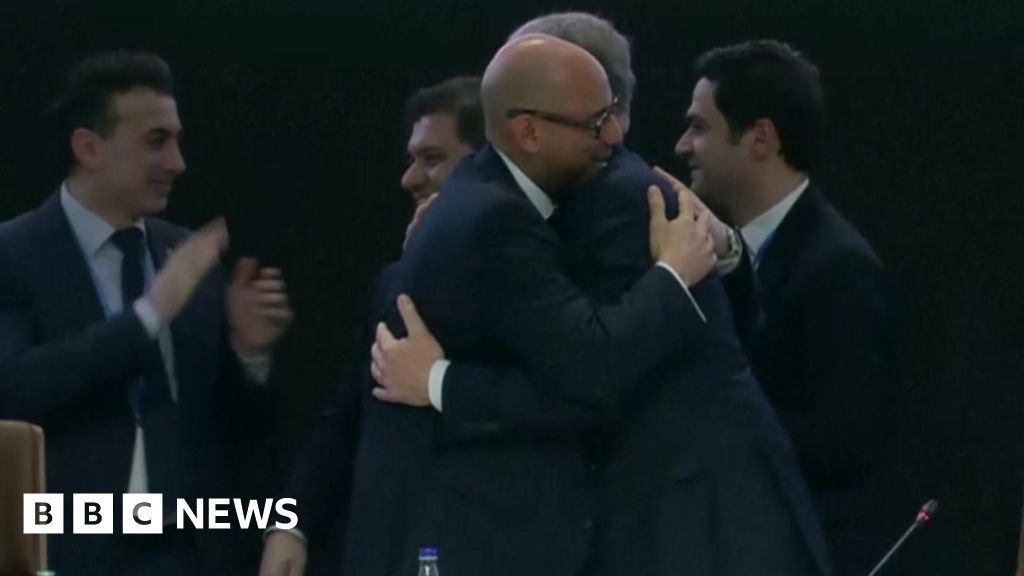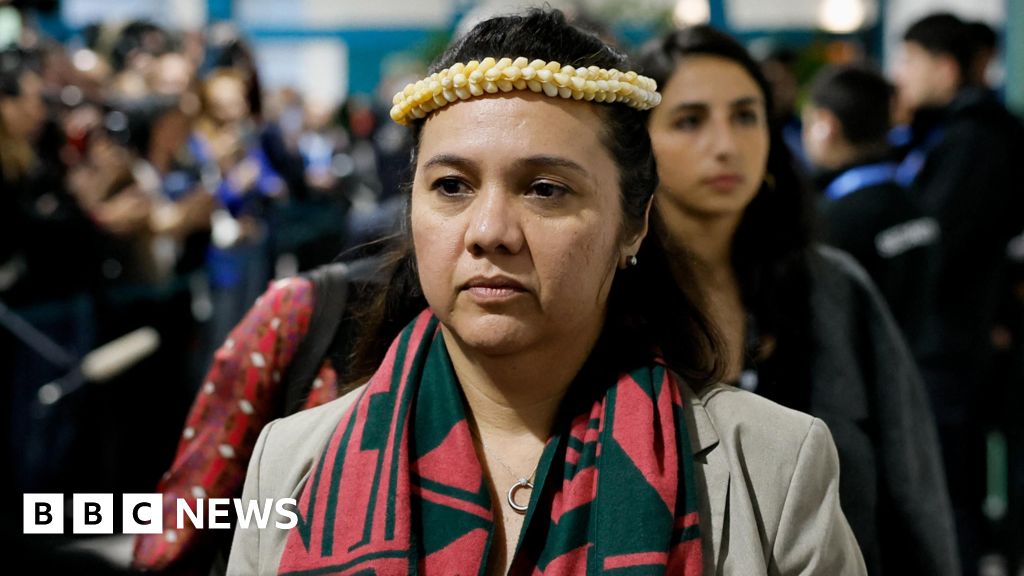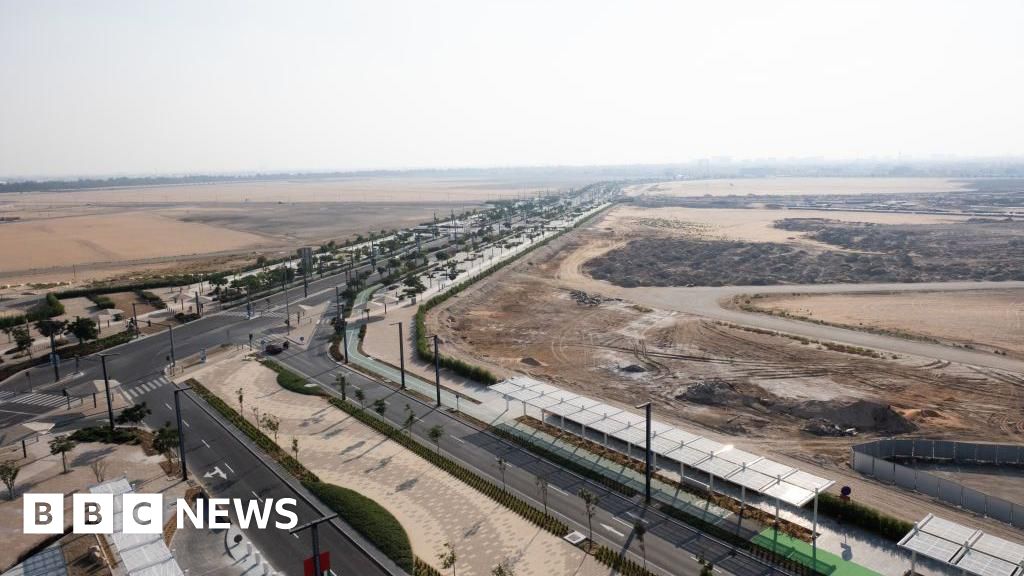ARTICLE AD BOX
Kenya's Senate is set to vote on whether to remove Deputy President Rigathi Gachagua from office at the end of the second day of his impeachment trial.
The deputy president is on Thursday defending himself before the lawmakers in the upper house of parliament, two-thirds of whom are required to oust him.
He faces 11 charges, including corruption, inciting ethnic divisions and undermining government.
As the trial began on Wednesday, the deputy president pleaded not guilty to each of the charges as they were read out in the house.
An overwhelming majority of MPs in the National Assembly last week voted to approve his impeachment, setting the stage for the Senate trial.
- Blunt and bold - Kenya's 'truth speaker' faces the sack
- Behind the fallout between Kenya's president and his deputy
He has fallen out with President William Ruto, just two years after they were elected on a joint ticket.
The row came to a head in June when Gachagua, in an act seen as undermining the president, blamed the head of the intelligence agency for not properly briefing Ruto and the government over the magnitude of mass protests against unpopular tax hikes.
Mr Ruto had just been forced to withdraw the taxes in a huge blow to his authority. He sacked his cabinet and brought in members of the opposition to his government.
Mwengi Mutuse, the lawmaker who had moved the motion, appeared in the Senate as a witness on Wednesday, accusing Gachagua of violating the constitution while taking the house through the various grounds of his motion.
He framed the accusations against the deputy president as "extraordinary" wrongdoing that would merit impeachment. He gave the example of Gachagua's remarks that the government was like a shareholding company, suggesting that only those who voted for the government would benefit in terms of development and services.
He also accused the deputy president of acquiring massive wealth through corrupt dealings, among other accusations.
The lawmaker was then put to task during cross-examination and at times appeared to have a hard time defending his evidence.
A clip of President Ruto speaking at a rally was played in the Senate where he referred to residents of Murang’a, in central Kenya, as "major shareholders" of the government.
Gachagua’s lawyers asked Mutuse how the deputy president could be faulted for "assisting" the president.
The lawmaker was also pressed to justify the basis of the valuation of the wealth the deputy president is alleged to have acquired.
He is accused of acquiring assets worth 5.2bn Kenyan shillings ($40m; £31m) in the two years since he became deputy president - allegedly acquired through corrupt means.
He has said that most of the properties in question were from his late brother's estate.
During the trial, one of Gachagua’s lawyers, Elisha Ongoya, said all of the allegations against the deputy president were "either false, ridiculous or embarrassing".
Andrew Mulwa, a former chief executive of the Kenya Medical Supplies Agency who was the second witness, faced tough questions over his allegations that he was intimidated by a call from the deputy president to return documents for a cancelled tender for mosquito nets that the president has been accused of interfering with.
"This was the first time I received a call from a sitting Deputy President and requesting for documents that were under investigations. Mr Speaker, in my 15 years of public service, I had never been asked to do that," he said.
Gachagua has denied the allegation as "ridiculous and baseless", and his legal team has pointed out this came when the process had already been completed, and argued that no money was lost
A third witness, Abdi Mohamud, the deputy chief executive of the Ethics and Anti-Corruption Commission, gave evidence over allegations of conflict of interest relating to the matter as well as allegations that the deputy president had received gifts in the form of cows from the public.
The trial is continuing with the deputy president defending himself for the rest of the day.
At the conclusion of the process later on, senators will debate the motion and then take a vote.
The deputy president is a wealthy businessman from the vote-rich central Mount Kenya region.
In just five years, he rose from being a first-time MP to become the number two in Kenya's leadership, after Ruto picked him as his running mate in the August 2022 election.
His impeachment trial has dominated the discussions of many Kenyans and the media in recent weeks.
Many observers expect his impeachment to go through if the opposition members support the ruling coalition as they did in the National Assembly.
Gachagua is expected to challenge the decision if it passes.
Kenyan media have already been reporting about his possible replacements, with serving governors Irungu Kang'ata and Anne Waiguru (both from central Kenya) and ministers Kithure Kindiki (interior) and Musalia Mudavadi (foreign affairs and prime cabinet secretary) being mentioned.

 1 month ago
11
1 month ago
11








 English (US)
English (US)